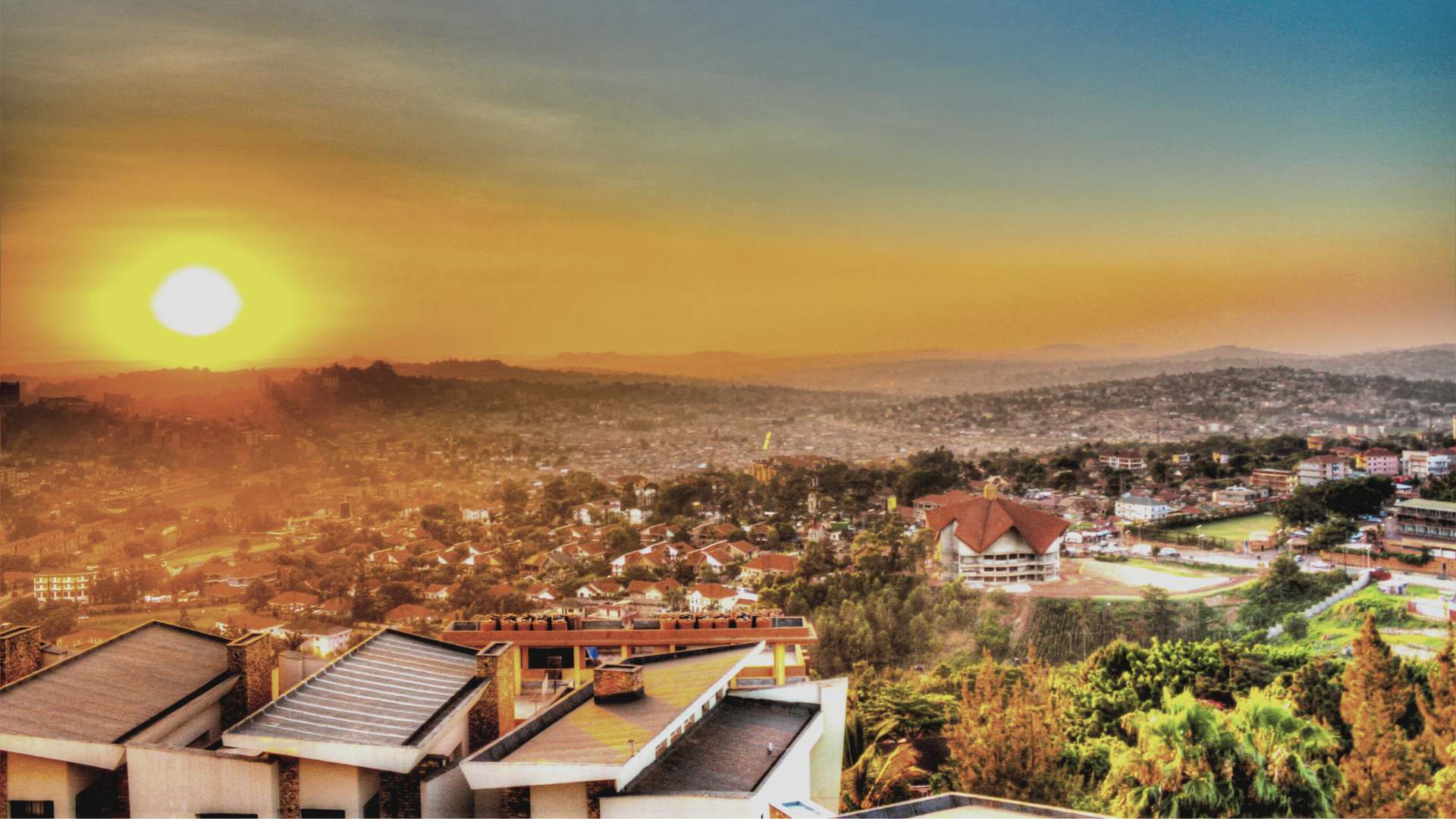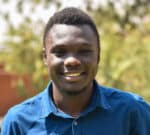The fusion lifestyle of a modern tribal African.

Sunset over Kampala, Uganda. (Credit: Goodman Kazoora/Getty Images)
This article was produced exclusively for News Decoder’s global news service. It is through articles like this that News Decoder strives to provide context to complex global events and issues and teach global awareness through the lens of journalism. Learn how you can incorporate our resources and services into your classroom or educational program.
In Kampala, Uganda, where the hum of traffic and city clamour compose a daily symphony, I work as a journalist on cutting-edge topics like the environment, data and digital innovations.
But my roots extend 223 kilometres east to the area around Mount Elgon. Here, amidst avian song, rustling foliage and the rhythms of locals cultivating their farms, I embrace my identity as a Gishu — one of more than 56 tribes in the country.
The life and culture of African tribes is often a mystery to those beyond the continent. I would like to tell you what it means to be both a modern African and a proud member of an ancient tribe.
Since I graduated and started working in Kampala, I have discovered a lifestyle that is a fusion of influences. I find myself as a 21st-century Gishu experiencing firsthand the shifts away from traditional customs that define our generation.
The Gishu are known for their enduring traditions. Most notably, they practise Imbalu, a sacred male circumcision ritual.
Rites of passage
In a unique stance among Bantu groups, the Gishu uphold this rite of passage, even as health campaigns promote hospital-based male circumcision. The Gishu do not practise female circumcision.
Imbalu is more than a practice — it is an identity.
A profound passage into manhood, it is a cultural litmus test, relegating the uncircumcised to the lifelong status of a boy.
In that case, the individual is barred from marriage, excluded from clan meetings and subjected to derogatory comments. It is no surprise that young lads fervently desire to undergo circumcision, well before the customary age of 16 to 18.
Embracing Gishu identity introduces intriguing dynamics with other tribes, who rarely miss an opportunity to inquire about one’s circumcision status. But for us, circumcision is a matter of pride, not least because it is linked to our founding legend.
Of gods and kings
The story goes that our patriarch, Masaba, settled around Mount Elgon and became entangled in a deep love for Nabarwa, who traced her lineage back to the Masai of Kenya. Nabarwa could not marry Masaba because he was not circumcised, so she guided him through the rite and ensured he bestowed it upon his progeny.
When Masaba welcomed his firstborn son, in-laws affectionately called him “Nkisu,” a Masai word for a bull. Masaba called him “Mugisu,” from which our tribal name Gishu derives.
And this is only one of our many legends. Outsiders are familiar with the seven-day creation story from the Bible and may also know some Greek or Norse mythology but Gishu myths unfold through over ten interwoven creation stories.
The Gishu are deeply connected to their ancestral lands around Mount Elgon. Some Ugandans call us the “wise men from the east” and there is a poetic idea that the sun rises earlier in the eastern mountains, so we receive the light first.
Our tales tell of the Gishu living peacefully in the shadow of Mount Elgon, but others led by a man called Kundu embarked on a journey to the central lands. Renamed Kintu in the legends of his descendants, he became the father of those we now know as the Baganda, inhabitants of the capital Kampala.
The languages of a people
In Kampala, I speak English with international colleagues and Luganda, a Bantu language of the ethnic Baganda people and the most widely used language in Uganda. But at home, I speak Gishu, a different Bantu language.
The Gishu are a distinct group boasting over ten dialects. Of these, Ludadiri is the easiest for Baganda people to understand, as we share some words, including the universal “ntu,” which means a human being. But there is also the risk of misunderstanding. While the Baganda call sugarcane “ekikaajo,” some Gishu call it “kumwibba,” which might be misconstrued in Luganda as stealing.
My father told me that Luganda words came into Ludadiri because of the influence of Baganda chief Semei Kakunguru. History whispers that white colonialists, who did not understand the tribes and played them off against each other, dispatched him with a mission to standardise the country. But the Gishu, proud guardians of Mount Elgon, were not to be trifled with and kept much of their autonomy.
Parallel to the politically dominant Baganda, Gishus historically functioned under a clan leader. But in recent times, under the presidency of Yoweri Museveni, the tribe has undergone a transformation to become a kingdom. Now a king, known as “Umukuuka,” is elected every five years, with leadership rotating among the three major Gishu groups for a fair chance at royalty. Critics contend the establishment of the kingdom is just a political manoeuvre by the ruling government.
Through the ages, the Gishu held their deities in great reverence and prominent among them was a god called Were. I distinctly recall my grandfather’s parting words: “Nabende alinde” (God protect you), a seemingly simple phrase that, unbeknownst to me then, concealed a reference to this Gishu god.
Ugandans and colonists
I think back to my days at primary school when we learnt about the tragic fate of Christian missionary Bishop James Hannington in 1885. His attempt to enter Uganda from the east led to his demise at the hands of the Busoga chiefdom, one of the Bantu groups.
In a captivatingly morbid lesson, our teacher recounted the linguistic twist that proved fatal. The Baganda king was consulted on what to do with the missionary and he said to the Busoga messenger “mumute,” which in Luganda means “release him.” But it was understood as “mumuute,” which to the Busoga chief meant “kill.”
Hannington’s own last words may not have helped either. When he said “let me go” in English, the Busoga heard “leta emigo,” which means “bring sticks” in their language.
Well, at least that was the version told by our teacher, who was trying to engage the class by being humorous and showing how misunderstandings can change history. Historical accounts assert that Bishop Hannington was speared.
As I reflect on the elements that evoke pride in me as a Gishu, it’s the stories, the wealth of culture, the vibrant ceremonies and the awareness of being part of a larger community that transcends arbitrary borders imposed by colonialists, splitting kin on the Ugandan and Kenyan sides of Mount Elgon.
Coffee in Kampala
In the end, perhaps it all boils down to coffee.
In Kampala, my mornings are effortlessly kick-started with a cup of instant Nescafé, a contrast to the nostalgic moments spent with my grandfather, who made coffee in the cherished tradition.
After harvesting, he would meticulously peel coffee beans using stones in a slow and rhythmic process. Then he would spend two or three days soaking, washing and drying the Arabica coffee.
The zenith of the process involved the expert roasting of the beans, followed by their pounding in a wooden mortar, a ritual often accompanied by the hum of folk tunes. This harmonious activity not only created an organic and fragrant aroma but also encapsulated the essence of our cultural heritage.
Now even those with vast coffee plantations sell off their yields cheaply to afford expensive instant coffee, marking a departure from tradition. It makes me sad but we move with the times and this is the way of the modern world.
Correction: A previous version of this story incorrectly identified the Busoga as Gishu. They but are instead one of the Bantu groups.
Three questions to consider:
- What is the difference between the author’s identity in the city versus where he is from?
- Why do young Gishu men want to go through the ritual of circumcision?
- What rites and traditions do you cherish from your culture?

Enock Wanderema graduated in 2022 from Uganda’s Christian University, with a first class degree in Mass Communication and Journalism. He is a regular contributor to Uganda’s Daily Monitor newspaper and has been an intern in the Kampala office of UN Global Pulse. He loves writing and bringing complex stories to life in the simplest ways.
Read more News Decoder stories about conservation:

453 males died of circu–ision in the Eastern Cape Province of ZA in a seven year period, and there were also 214 pen-le amputations. Google “ulwaluko” for gruesome photos of the results. The sooner this bizarre and outdated tradition dies out, the better. No-one becomes a man by having parts of their manhood cut off anyway.